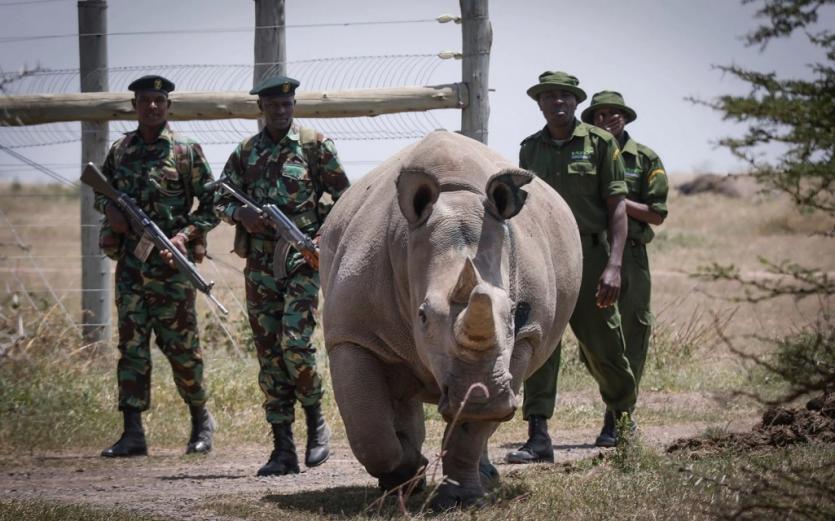Armed guards watch over Fatu, one of the world's last remaining northern White Rhinos, in Kenya last year. Photo:REX
Poachers taking advantage of Coronavirus crisis threaten the balance of wildlife
By Patryk Krych | The World Daily | JULY 15th 2020
A series of severe spikes in poaching have all been reported around Pakistan, India, Nepal, Uganda, as well as many other African countries. The numbers only grow in brutality as time goes by, with many wildlife protection authorities having been reassigned to help stifle COVID cases.
The situation has been noted as dire in Botswana, with at least 10% of the country’s 500 rhino population entirely wiped out since March time, when the quarantine regulations first began to be imposed with increased strictness in the midst of the pandemic. “It’s a bloody calamity. It’s an absolute crisis,” said Map Ives of Rhino Conservation Botswana on the situation.
“Species are being wiped out by organised trade networks,” said project director of not-for-profit The Habitats Trust, Trisha Ghose. “New poaching techniques are emerging faster than we can respond to them.”
Ghose warned of a 151% increase in poaching incidents reported in certain parts of India. Due to the abrupt halt to tourism caused by the imposition of quarantine in the face of the COVID-19 pandemic, a large number of wildlife protection programmes had also lost their primary sources of funding. Many conservationists and rangers have seen a curb in their ability to monitor poaching hot spots with their previous ability due to the lockdown restrictions.
A National Geographic wildlife watch published some harrowing news on the situation in Uganda, in the country’s North-Western region. The worst incidents occur in the largest protected area in all of Uganda: In Murchison Falls National Park. The poachers are prone to using various traps, primarily cheap wire snares, as well as “deadly steel traps, repurposed from old car parts,” Dina Fine Maron of National Geographic wrote. These traps were described to have been powerful enough to snap an animal’s legs off, pinning them to the ground until they die of blood loss, dehydration, or of starvation.






